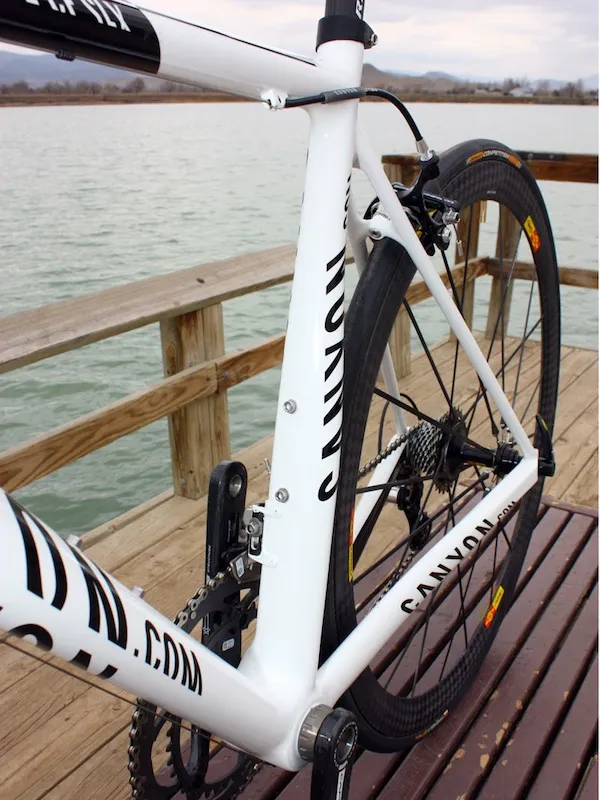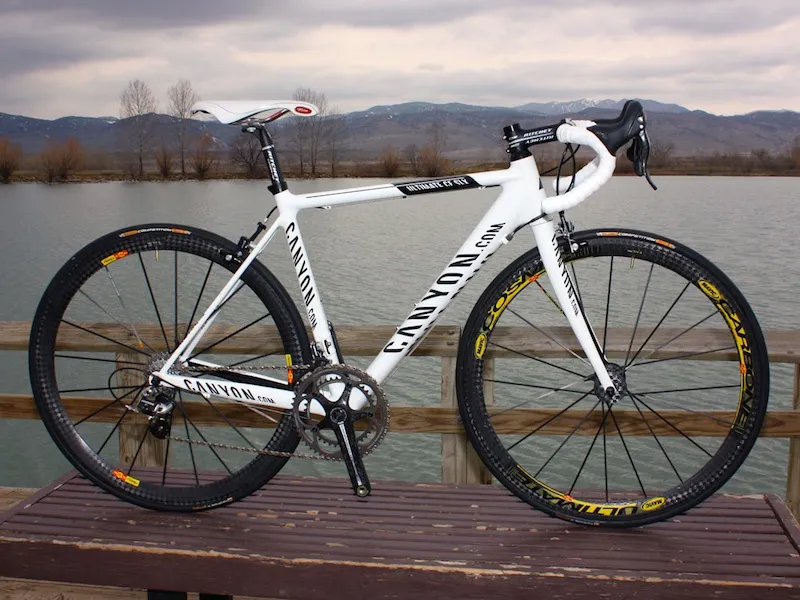A legal dispute between bike companies Canyon and Cervélo has been settled out of court after “a constructive dialogue between both parties,” according to a joint press release issued today.
Canyon had accused Cervélo of violating the patent protecting their Maximus seat tube, pointing to similarities between that design and the seat tube on Cervélo’s R3, R3-SL and RS frames.
The German company have now agreed that Cervélo can continue manufacturing the frames, unchanged. But in return they must give Canyon access to some of their patented technology.
This avoids further legal wrangling and expense, and is also likely to increase Canyon’s marketability and value in the super-high-end market segment both companies compete in – possibly at their Canadian rivals’ expense. “We’re happy this matter is resolved, that’s good news for both companies and for consumers,” said Cervélo co-founder Gerard Vroomen.
“After the long-lasting lawsuit, both sides can once again concentrate on what they can do best: building high-class, innovative and trendsetting bicycles,” said Roman Arnold, chief executive of Canyon.
Both manufacturers have agreed to keep full details of the settlement and shared patents confidential. Both Cervélo and Canyon declined to comment when approached by BikeRadar.

The design characteristic in question, Canyon's Maximus seat tube
Canyon’s claim that their patent had been infringed by Cervélo was upheld by a district court in Düsseldorf, Germany in September. The Canadian company appealed that decision, saying the patent was invalid due to “prior use” and the “obviousness” of the design. In November, the European Patent Office declared the Maximus seat tube fully patentable, but demanded that Canyon adjust their claim against Cervélo.
Canyon already hold the Maximus patent in nine European countries and corresponding patents have been granted in the USA and China. Both companies now say they “inherently acknowledge the other party’s intellectual property and the resulting protective rights”.

